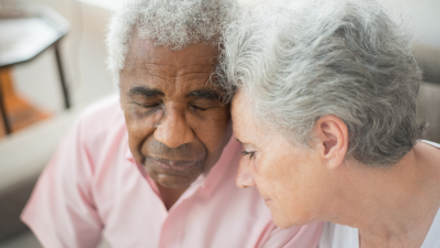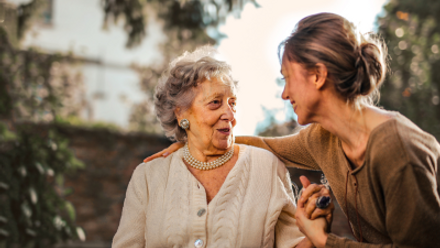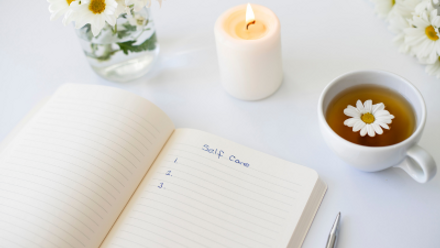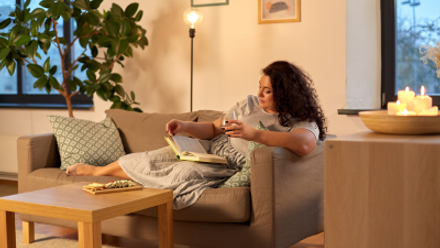Who is responsible for happiness in our homes?
4 minute read
It’s National Organising Week and at APDO we can’t stop thinking about ways to make your place, your happy space.
In today’s blog, APDO member Caroline Rogers considers whose role it is to create happiness in the home as she looks at some of the research behind gender roles and responsibilities.
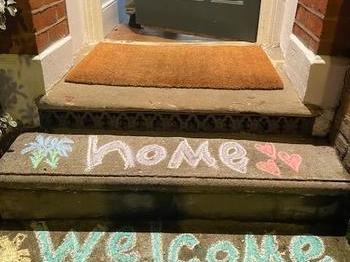
Home is what welcomes us on waking and greets our return from busy days. It can be a safe place of refuge where we are free to say and do what we like and truly be ourselves. When our homes look and feel like who we are and who we want to be, that can only be a good thing.
And good things make us happy – however we define happiness.
So, who is responsible for happiness in our homes?
We may think the answer to this question is obvious. All of us are responsible for getting on top of things at home and curating a place where everyone feels welcome, safe and can flourish.
However, before we affirm this answer, it’s perhaps helpful to outline three things we know already:
- As professional organisers, we regularly witness happiness outcomes among our clients. We see their lives becoming easier. Clients often report less family/housemate disagreements. They report a catharsis and they make (good) decisions about relationships. And there’s more – new jobs, starting exercise or taking it up again, welcoming pets into their home, healthier sleeping and eating habits, improved parenting, joyful meals with friends and family.
- In academia there is a great debate on how we define happiness. We know from positive psychology and other sciences that our own activities and behaviours can boost it. Working to our strengths, being kind and grateful, trying out new things, immersing ourselves in nature, eating and sleeping well, practising mindfulness, singing – the evidence base for all these activities and more as happiness boosters is increasing daily. Investing in home to boost happiness is only just beginning to receive attention from a few peer-reviewed studies (see Rogers & Hart). More are on their way.
- Even when home clutter and organisation feel insurmountable it’s possible to learn to begin to take control and create a happier home. Just knowing this can be a mood boosting experience. For anyone feeling completely stuck, the internet is full of great advice and APDO has a Find an Organiser page full of professionals ready to be your ally and work with you.
And yet as we return to our initial question of who is responsible for happiness in our home, we discover that perhaps not everyone in our household is on the same page as us.

There’s a research study (Saxbe & Repetti, 2010) which reports that husbands and wives responded differently to (perceived) clutter in their homes and household chores that needed completing. The wives showed unhealthy cortisol patterns and used “depressed language”, the husbands didn’t.
Interestingly, the same researchers published more data the following year which revealed that men spent more time in leisure activities at home and women spent more time doing housework.
We see more and more studies reporting that women do the bulk of household labour in heterosexual relationships. It appears that same sex couples are much better at home labour division – that is until they have children.
Why is this? My thought is that it’s because those stereotypical cavewoman (housekeeper) / caveman (provider) roles are so entrenched in our reptilian brains, that we’re still learning to unlearn them. Let’s remember that our reptilian brains (the part of us that deals with basic survival needs) deserve gratitude – it’s the reason our species has survived, and it keeps us safe.
But we don’t live in caves any more.
Whatever the reason for this ongoing stereotypical belief that the responsibility for home happiness is less a man’s and more a woman’s, it is a deeply sensitive and highly contentious topic. As you read this, how many quarrels spring to mind regarding cleaning and tidying up?
One reason for this might be varying clutter-tolerance thresholds combined with our subjective experiences and expectations of what is considered clean, tidy, clutter, or treasure.
Another is that we’re not great (yet) at having these conversations. One of the most uncomfortable documentaries I’ve seen involved a woman interviewing couples in their homes. She asked questions like ‘who puts out the rubbish?’, ‘who does the washing up?’, ‘who cleans?’. The tension, defensiveness and guilt in both partners was palpable. I believe we’d all have felt more at ease if the couples were being interviewed about their sex lives.
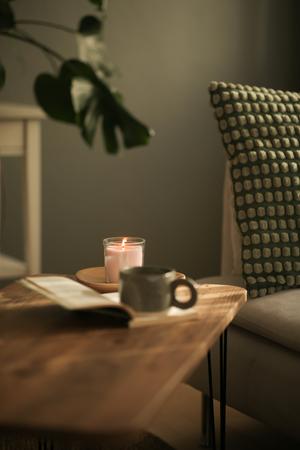
An unfortunate outcome of all things home and homemaking lying typically in the female domain is that paying attention to home inevitably acquired a reputation of being dull, routine, and mundane – and that to give it greater thought and consideration, to perceive its many benefits, was frivolous. It’s time to change that.
The most important thing is this. Paying attention to our homes and taking responsibility for making them happier spaces is crucial. Having conversations with those we live with and giving ourselves permission to pay attention to making home a happy place isn’t important to our wellbeing – it’s essential.

